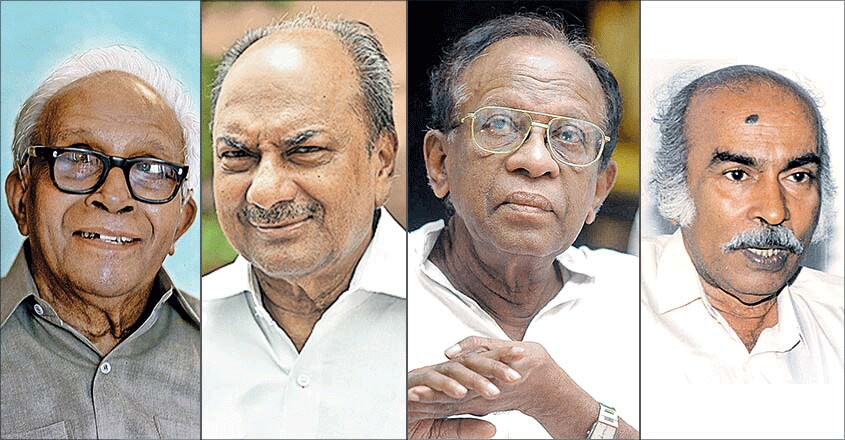By
Vivek Menezes
livemint.com
8 min
Panjim: Earlier this week, when this reporter arrived at Goa’s Dabolim airport, the first thing I saw exiting the plane was a huge casino advertisement, showing an Indian man flanked by two enthralled foreign women. The slogan was “Always in The Game". At the baggage claim, the carts bore another casino’s logo, and the billboards above the carousels featured yet another casino ad, but this time the Indian man had three blondes at his elbows.
On to the exit, past casino company booths offering “gaming packages", another casino installation in the middle of the aisle literally blocked my way. This one dispensed with the Indian man altogether, and featured just a pole dancer with flowing brown hair under the hashtag #FeelAlive.
If all this is heady insinuation, the messaging becomes even more explicit when driving into Panjim, where the once-spectacular heritage waterfront is now dominated by lurid neon signs. The longstanding ban on obtrusive signage is flouted by huge outdoor screens depicting foreign women dancing, foreign women pouting, foreign women driven into apparent ecstasies by the act of playing roulette, with one ubiquitous slogan barely wink-winking “Get Lucky".
This past New Year’s Eve, taking it one step further, city residents discovered scantily-clad foreign women posted outside the casinos. Each one was outnumbered by dozens of Indian men, all of them scrambling to grab suggestive selfies.
Ban only in name
Fully aware that gambling is a social problem, the Goa government responded inscrutably. On 30 January, chief minister Pramod Sawant announced “From February 1, we are stopping all the original Goans from entering casinos. They will be banned. I have already moved the file. For now, the GST Commissioner can enter the casinos at any time and ask for an identity card if he suspects anyone to be a Goan."
Sawant’s declaration met with instant ridicule, including within his own ruling coalition. Former deputy chief minister Sudin Dhavalikar said, “There are ministers, MLAs, panchas, sarpanchas, zilla panchayat members, playing in casinos. They should be banned first, and then the issue should be discussed."
Others pointed out that “original Goans" is a bizarre term, with veteran Goa-based editor Ashwin Tombat writing, “If the state government does manage to properly legally define who is a Goan and who is not, then it can and must go ahead and fulfil another, more important and longstanding demand of the Goan people. Non-Goans must be banned from buying land in Goa!"
Predictably, 1 February has long gone, and there isn’t any ban. The chief minister has gone silent again. But no one expected anything different. This is because the history of casinos in India’s smallest state is an expansive litany of the double cross.
Every promise has promptly been broken, with the most egregious examples coming in the tenure of Sawant’s predecessor, the late Manohar Parrikar, who represented Panjim for 25 years (there was an interlude while he served as Narendra Modi’s defence minister), eventually dying in office a year ago.
While in the opposition, and running for elections in 2012, Parrikar led protests on the Mandovi waterfront, decrying casinos as “dens of vice" and “a social evil", which he pledged to eradicate if he became chief minister again.
But when granted a landslide victory, the biggest casino operator in India showed up on the celebratory dais, and subsequently the gambling boats proliferated, becoming ever-larger and more intrusive. Panjim’s idyllic Latinate beauty was steadily overwhelmed by tawdry casino imagery. Now, each evening, the river road is paralysed, with hordes of low-budget domestic tourists thronging to the ersatz glamour.
Reporting from the casinos
One night earlier this week, I walked into the newest entrant into the casino marketplace, which splashes its logo boldly in the most expensive slots in local newspapers. Each ad prominently features foreign (read “white") exuberant women in various gambling settings, but as I waited, exactly zero examples showed up to try their luck.
Of the roughly 150 punters who headed in over the course of nearly three hours, seven were women. Everyone else was an Indian man, often spilling out in groups of eight-nine from a single overstuffed Innova.
Atish António Fernandes, director of Panjim-based 28-year-old First Class Holidays and executive member of the Travel and Tourism Association of Goa (TTAG), said, “The casino industry plays a part in the hotel business in Panjim and surrounding areas, but I don’t think it plays any role in what we could call the high end tourism marketplace. Our own business largely caters to higher spenders, and we see very minimal footfall of our guests into casinos. I would say only a handful of people every year."
This highlights an essential paradox, Fernandes said, “despite what seems like large ad budgets, casinos have not been able to capture much interest from premium visitors".
He added: “Although not very open and visible, prostitution seems to be a big draw for some visitors on the casino boats. From all accounts, and what we know has happened everywhere in the world from Las Vegas to Macau, it is natural for the flesh trade to flourish in the background of the casino business."
He goes on to add: “What’s now happening is that beside hotels, preferred customers are being given accommodation in villas and apartments. In these environments, there’s obviously much more privacy, but it is quite toxic to have these kinds of guests out in the community, alongside young children and families."
State capture
The International Monetary Fund has an excellent term for what has gone out of control at dizzying speed with casinos in Goa. In its quarterly magazine Finance & Development for September 2001, authors Joel Hellman and Daniel Kaufmann summarized, “We define state capture as the efforts of firms to shape the laws, policies, and regulations of the state to their own advantage by providing illicit private gains to public officials."
This is precisely what is happening here, with every party and politician thumping chests against gambling, then mutely turning around in exactly the opposite direction when coming into any position to follow up on those promises.
The gambling industry itself has no doubt about its hold on Goa politics. The best example came last year, when Atanasio ‘Babush’ Monserrate competed to win the Panjim legislature seat for the Congress Party (it was his fifth different party alignment). He correctly surmised his best possible plank was to emulate his one-time mentor Parrikar, and jolted the race by pledging to remove the casino boats within 100 days of his victory.
Shaken by this, and realizing the potency of public sentiment on the issue, the Bharatiya Janata Party (BJP) followed suit, stating it would also remove the casino boats if it wins, while failing to furnish any reason why it failed to act all the years it was in power.
That’s when Narinder Punj, “Chief Visionary Officer and Mentor" of Big Daddy Casino Goa, told IANS, “Awarding a licence to any casino operator in any other state, it could topple the government, because there is still public resentment against it. So most governments are very wary about giving out licences."
But not here, where public ire is only paid lip service during elections. Punj added: “In Panaji, you now have Babush Monserrate who is saying within 100 days I am going to get casinos out. We heard that before from Parrikar. Parrikar used to stand outside the Caravela (the first casino in Goa) with a mashal…it won’t be long before the people that speak against us come with us."
And just like that, when Monserrate did win, he backed off, then compounded his volte-face by switching parties again to join the ruling BJP.
Punj made another pertinent comment when he admitted that many of Goa’s casino operators opposed any official gambling commission, which would control the current, totally unregulated scenario (“if it comes into place and if it is enforced, then it makes making of money, or the making of mega bucks difficult").
Matter of revenues
This highlights two interesting dimensions of the industry’s co-option of all sides of the political divide. The state’s revenue from casinos in 2019 was the relatively insignificant sum of ₹411 crore. There’s also the total antipathy of Goans to this type of gambling. The last study by NGO Sangath found only 1.1% of adult males had used a casino once, while 39.5% played matka, the popular street sweepstakes of the Konkan region. More appreciable was the 67.8% who bought lottery tickets, but that is an ingrained cultural habit dating back to the colonial Provedoria da Assistencia Publica lottery that was established to raise funds for social services.
This prevalence of gambling may seem unpleasant because so many people from around India and the world are invested in an entirely different Goa. But there’s ample evidence of exactly how the casino stranglehold is going to play out. Last year, at an industry event in Macau, co-founder of Union Gaming Grant Govertsen let slip what he’s been told by industry insiders.
“The Indian government has asked casinos to build integrated resorts in Goa. Gambling operators who did not enter Macau, when the game was liberalized at the beginning of the millennium do not want to miss the boat in Goa, and want to bet on what might be the next Macau. We expect Goa to quickly become a $1 billion market, as it transitions to land-based casinos," said Govertsen.
Then he mentioned that India’s biggest casino operator “purchased a large site located near Goa’s already-under-construction new airport and was now underway in terms of planning the site with a world-renown gaming architect".
This is merely yet another public admission of one of India’s biggest open secrets—the gargantuan, entirely superfluous “second airport" intended for Mopa in North Goa is being custom-built for the benefit of massive casinos which aim to become “the next Macau."
This real estate scam, with an airport attached, was cleared in astonishingly dubious circumstances, prompting the state’s undersecretary for finance and expenditure Sushma Kamat to put on record, “Unrestricted land use may be used for commercial activities which may not be beneficial to the state and its people. Handing over such a land mass to a private entity who may develop it for whatever purpose may create third-party rights without adequate compensation to the state government".
In conclusion
This is why every chief minister in Goa can feel there’s a kernel of truth when he declares, as did Sawant in a formal reply tabled in the state assembly just days ago, “The government has taken the decision to shift the offshore casino outside River Mandovi subject to the availability of suitable site. Casinos could not be shifted for want of appropriate site and time period for the same is extended up to March 31, 2020."
Sawant is sticking to the plan to keep delaying until he can declare that all casino operations must shift to land at the airport. But surprise, surprise for the citizens of Panjim. There every indication the boats will stay, with all the tawdry “entertainment" minus the game tables. Just goes to prove Paul Newman’s famous dictum about gambling, “If you look around, and can’t tell who the sucker is, it’s you."
Vivek Menezes is a Goa-based writer and photographer.



/https%3A%2F%2Fwww.mangalam.com%2Fuploads%2Fthumbs%2Fimagecache%2F600x361%2Fuploads%2Fnews%2F2020%2F01%2F366467%2Fbasheer.jpg)
